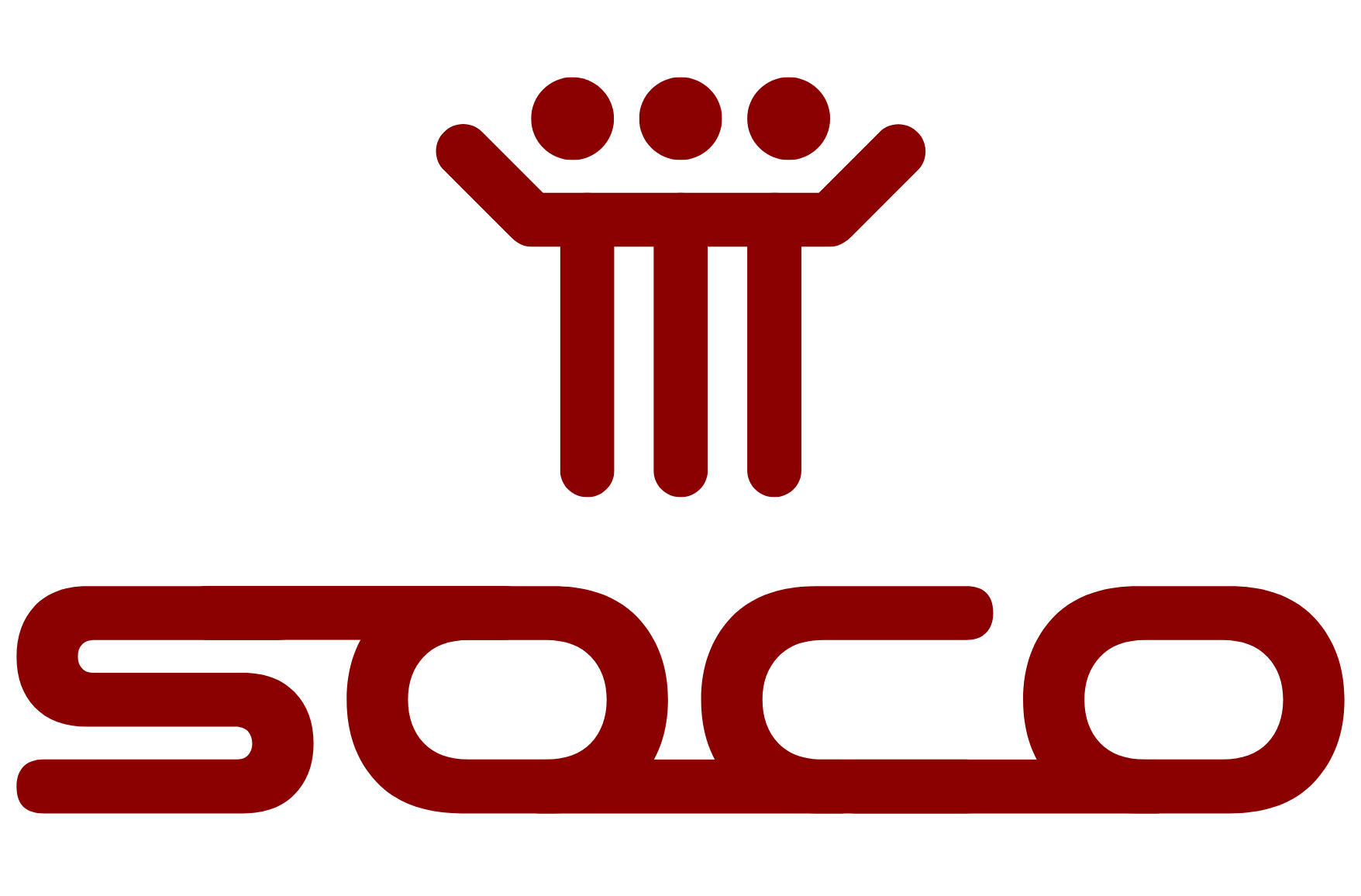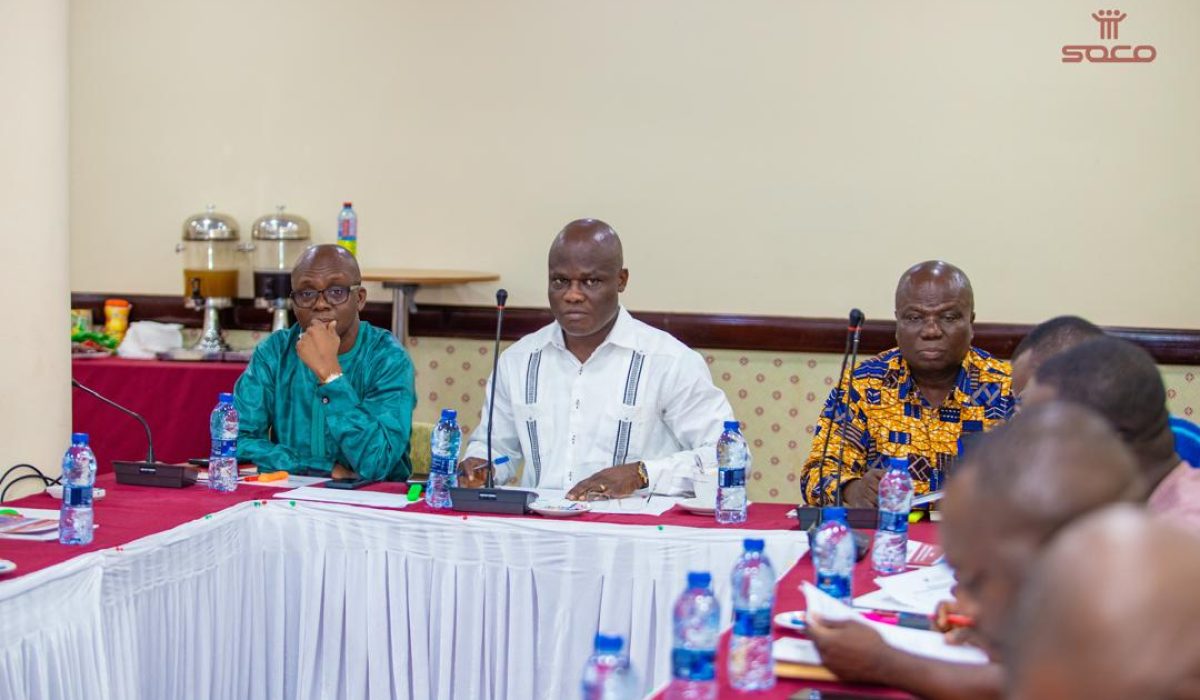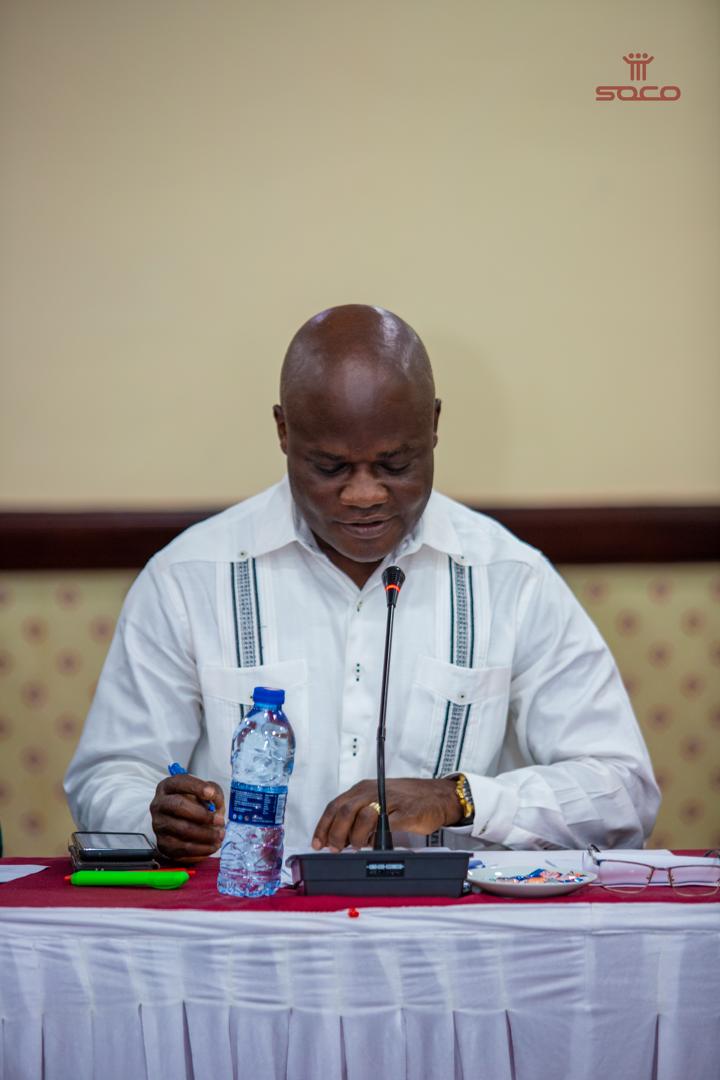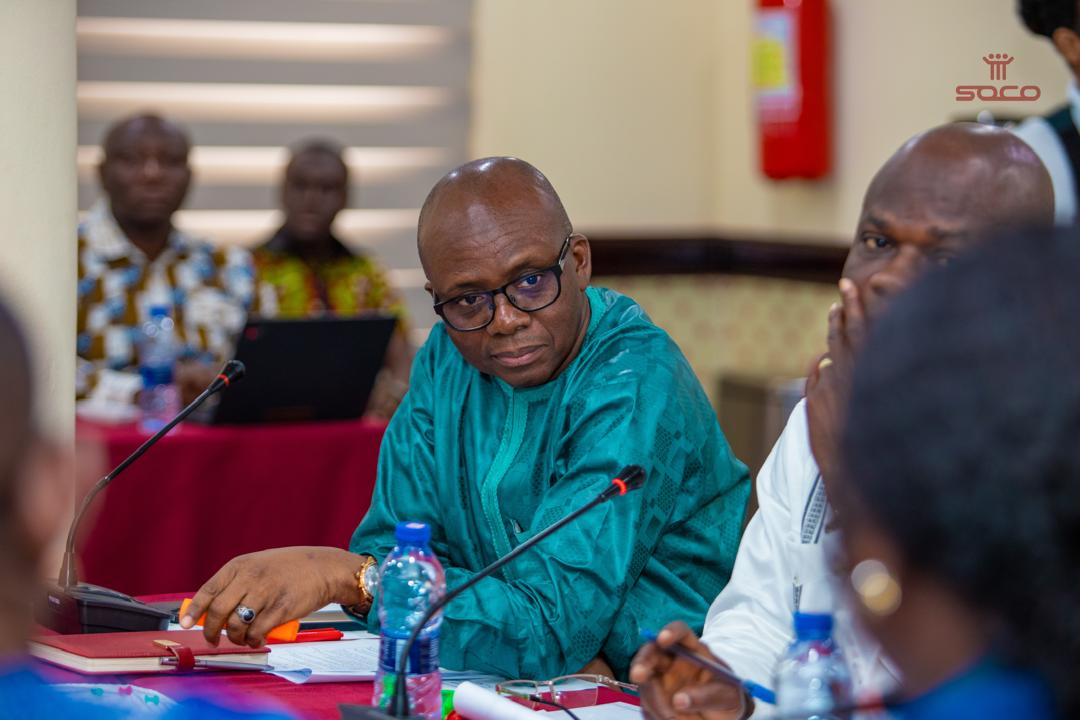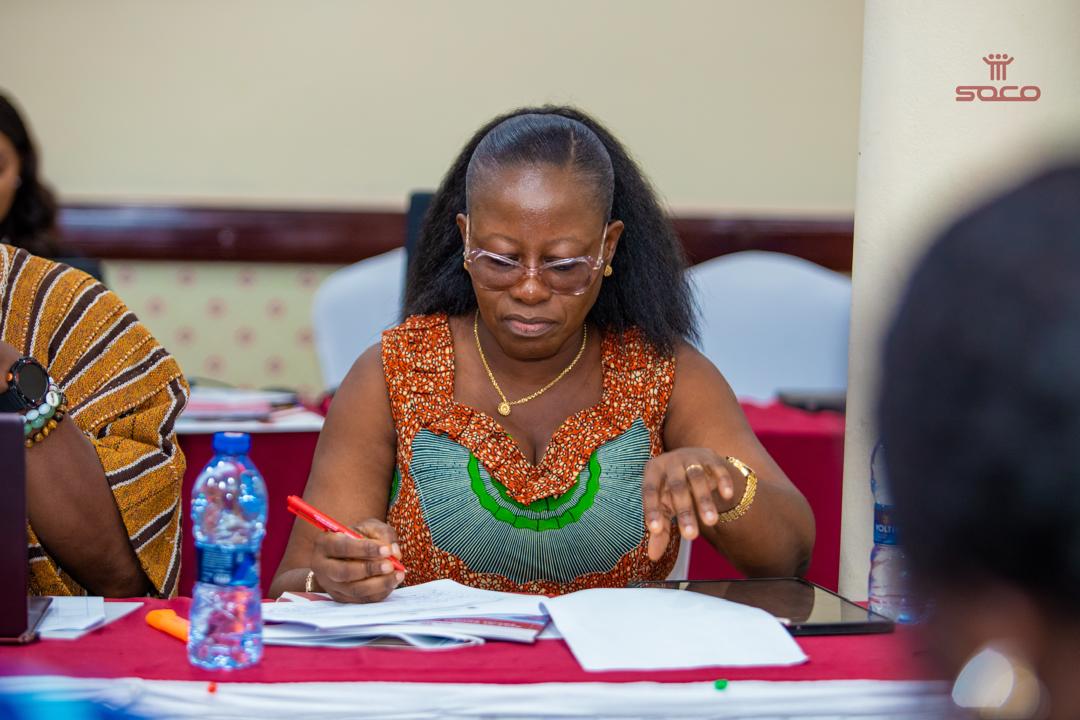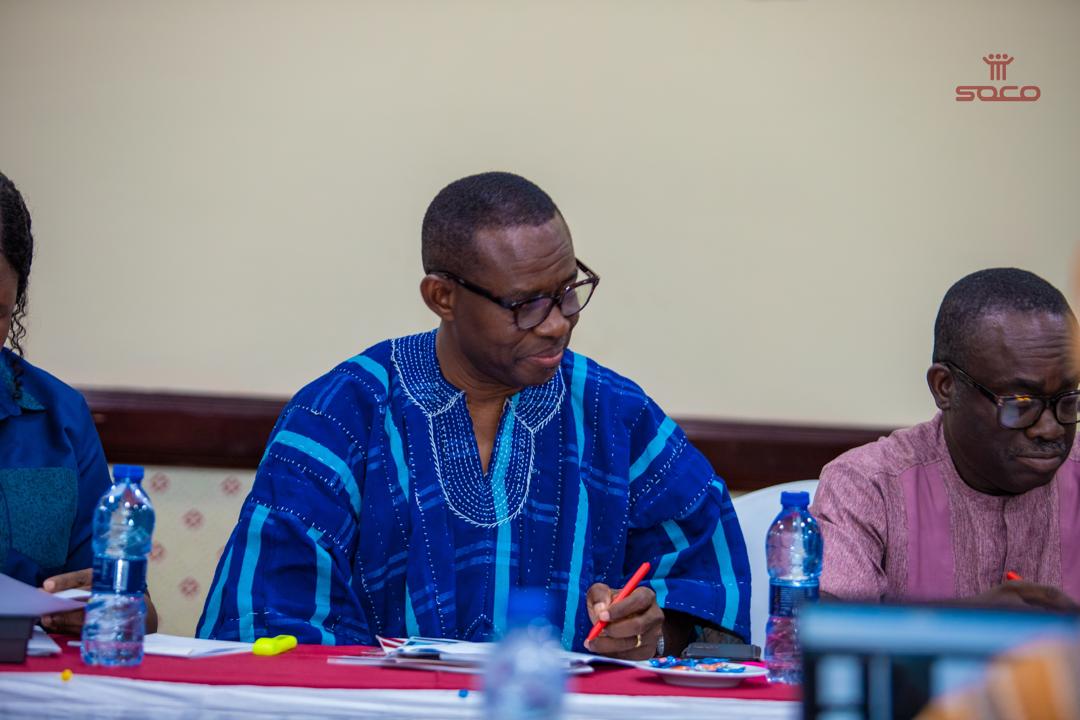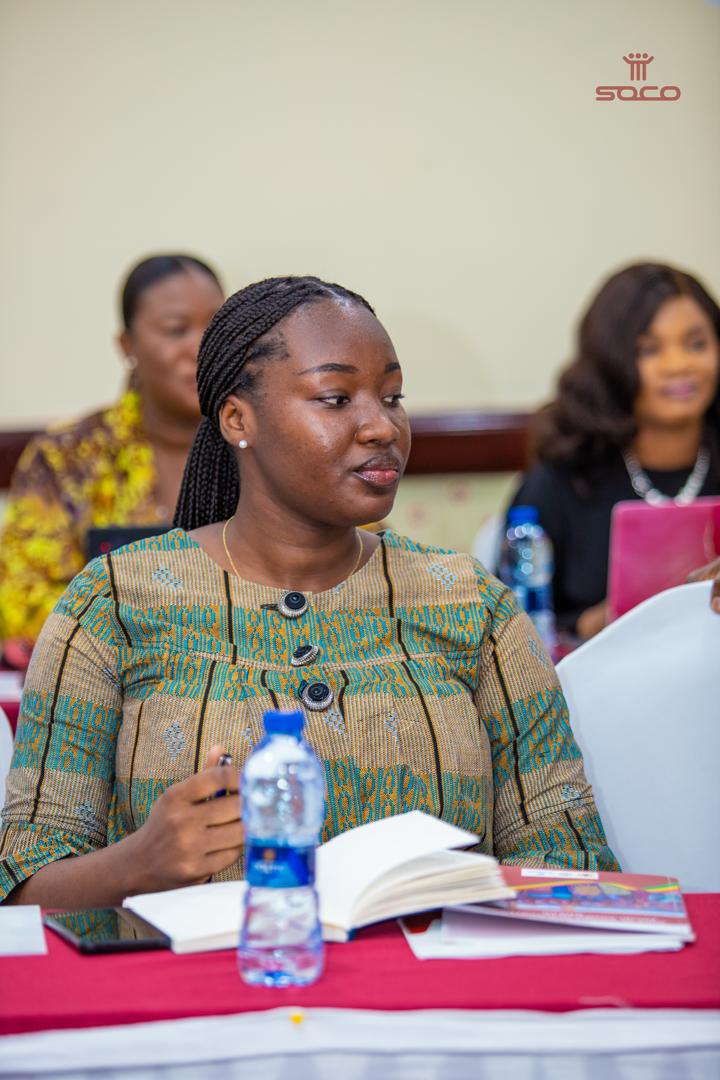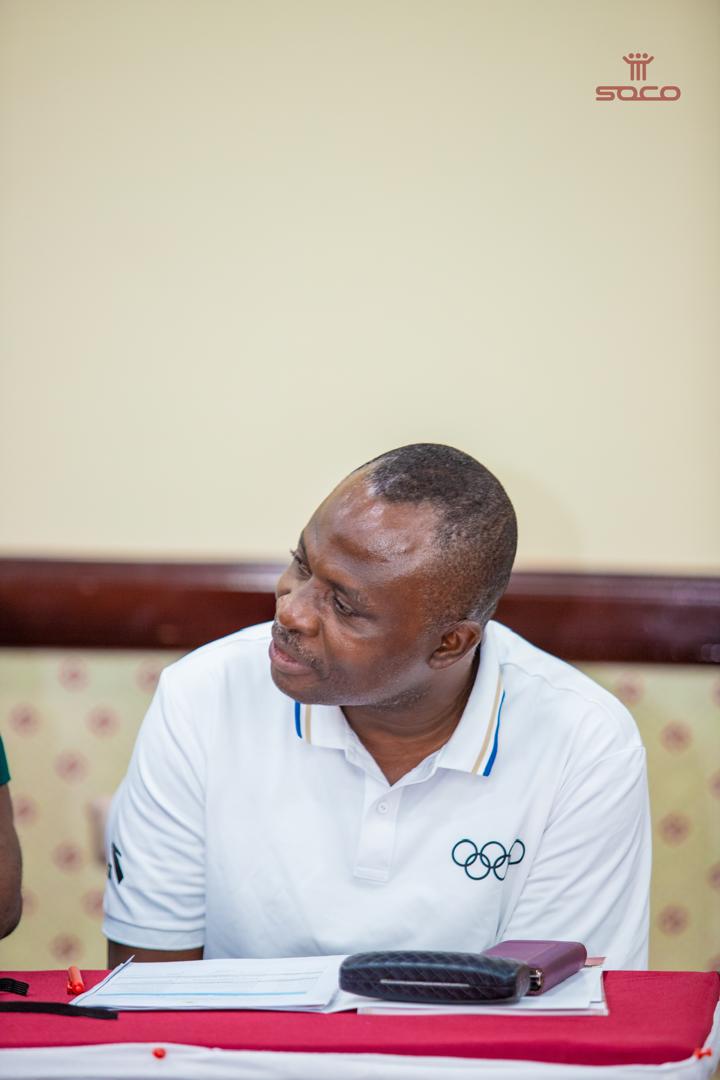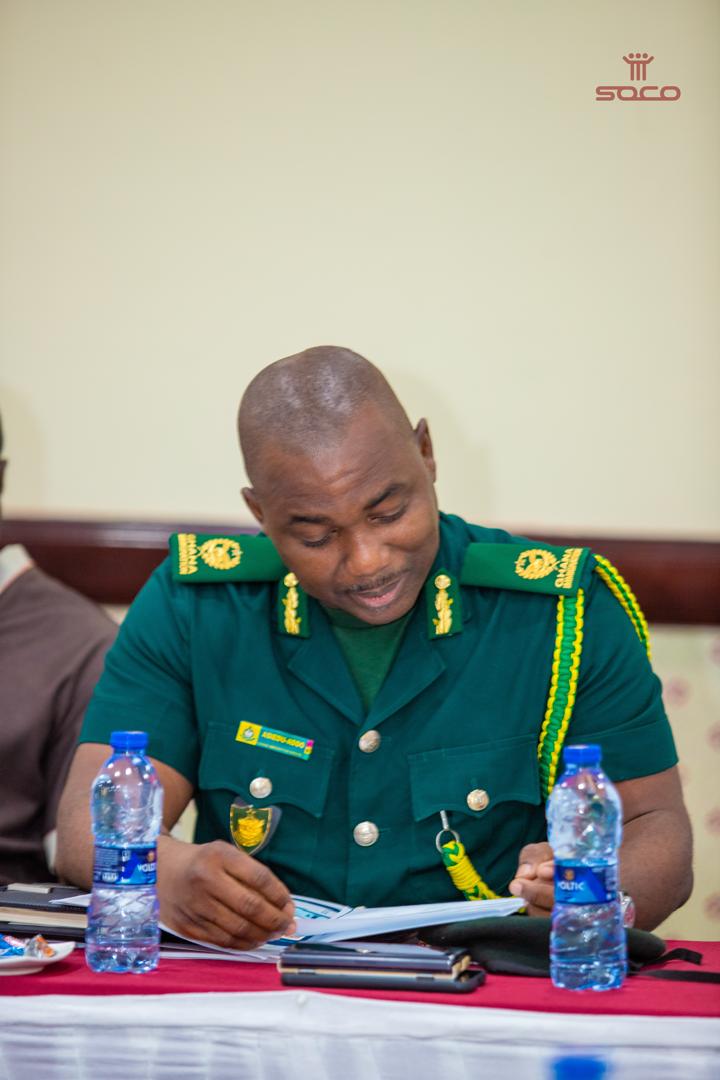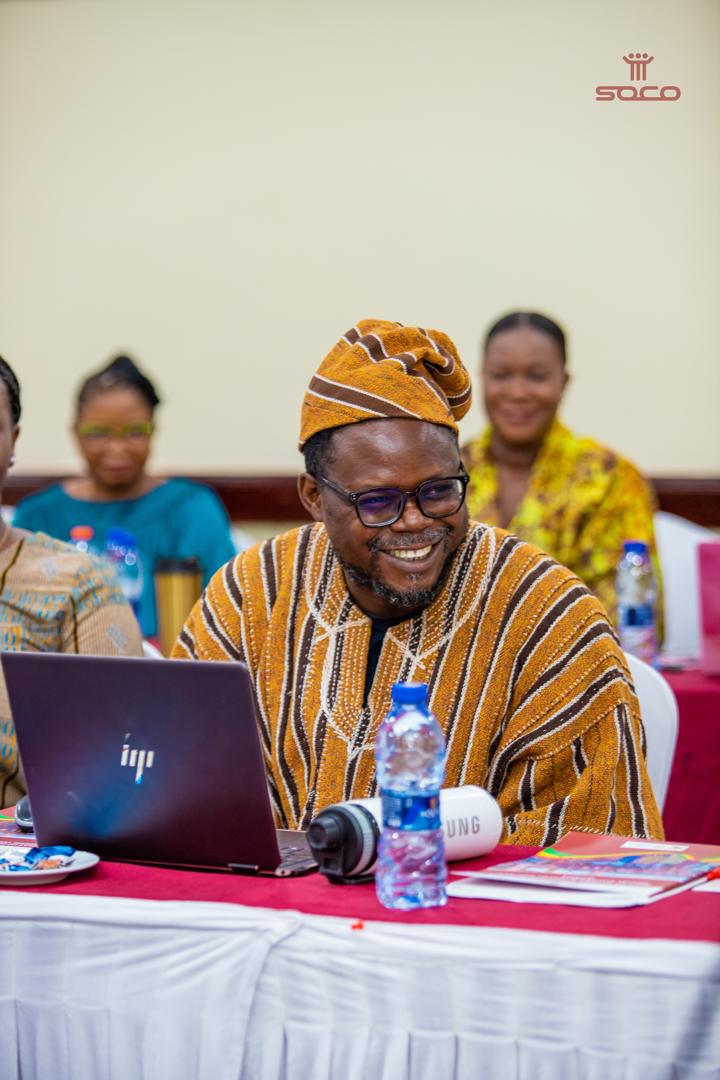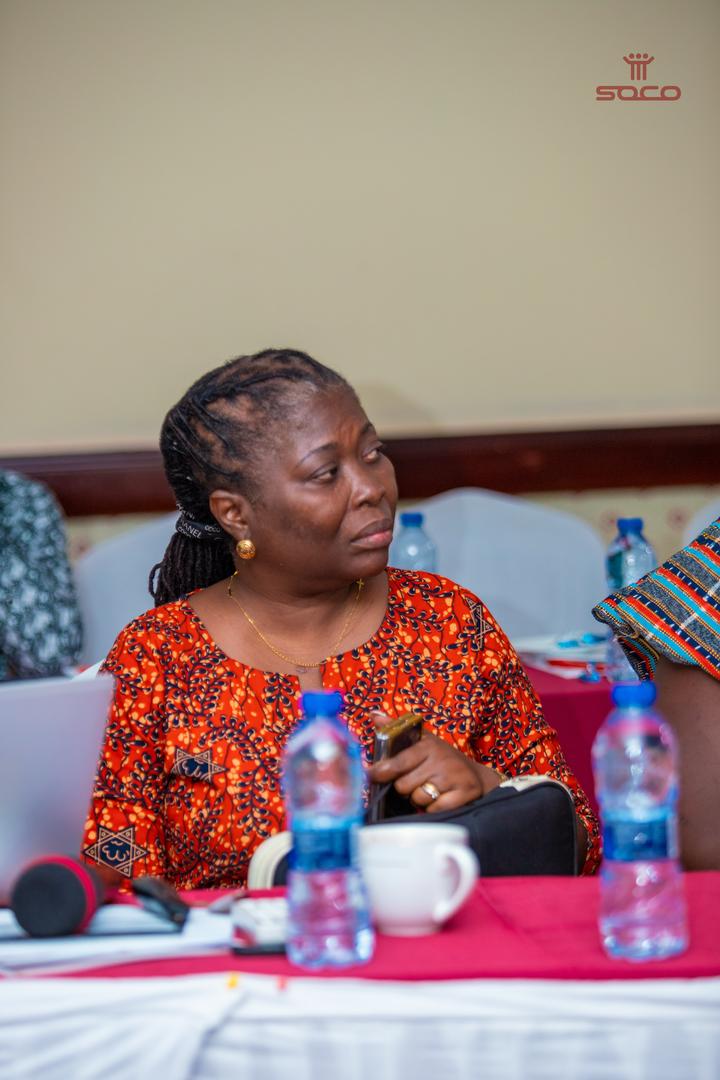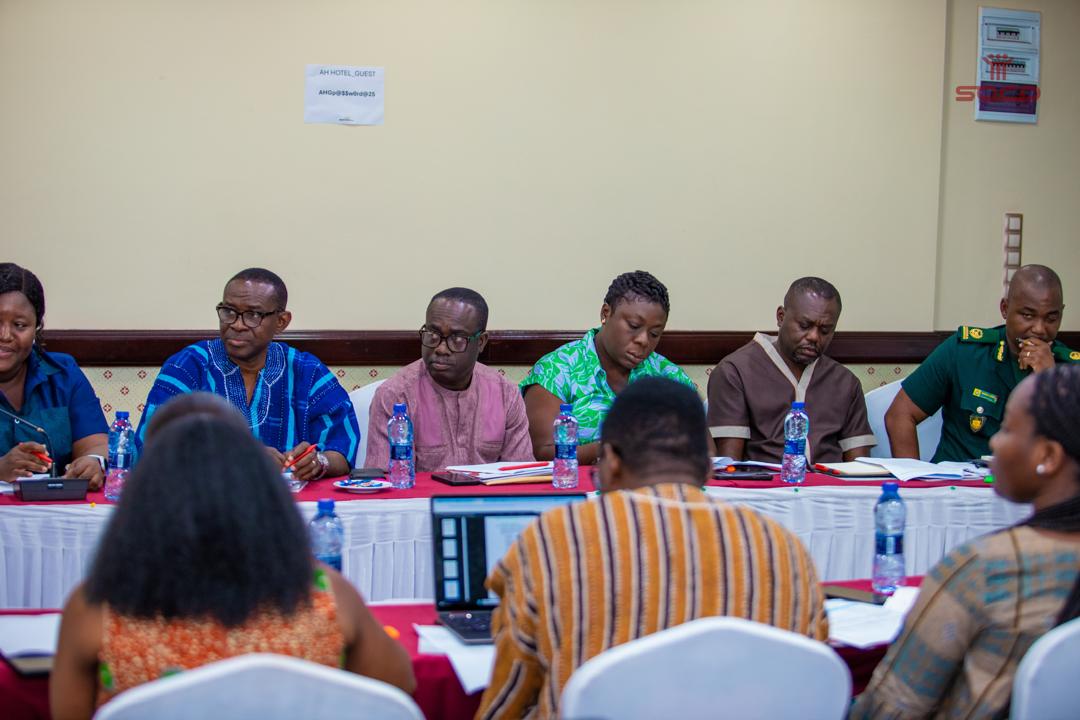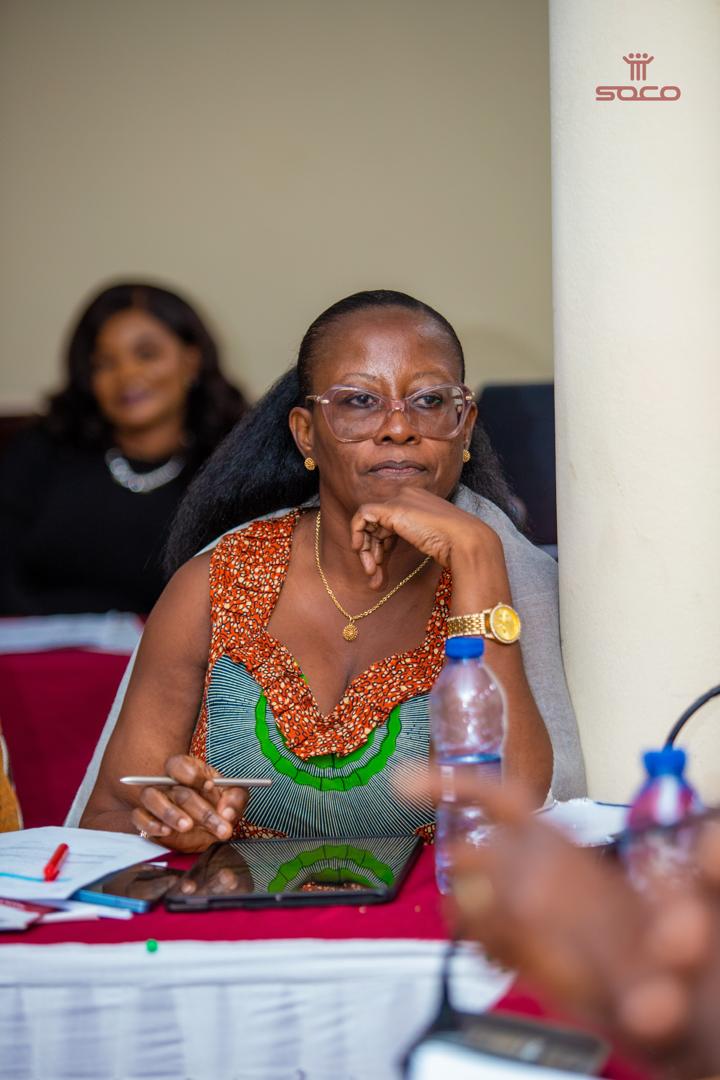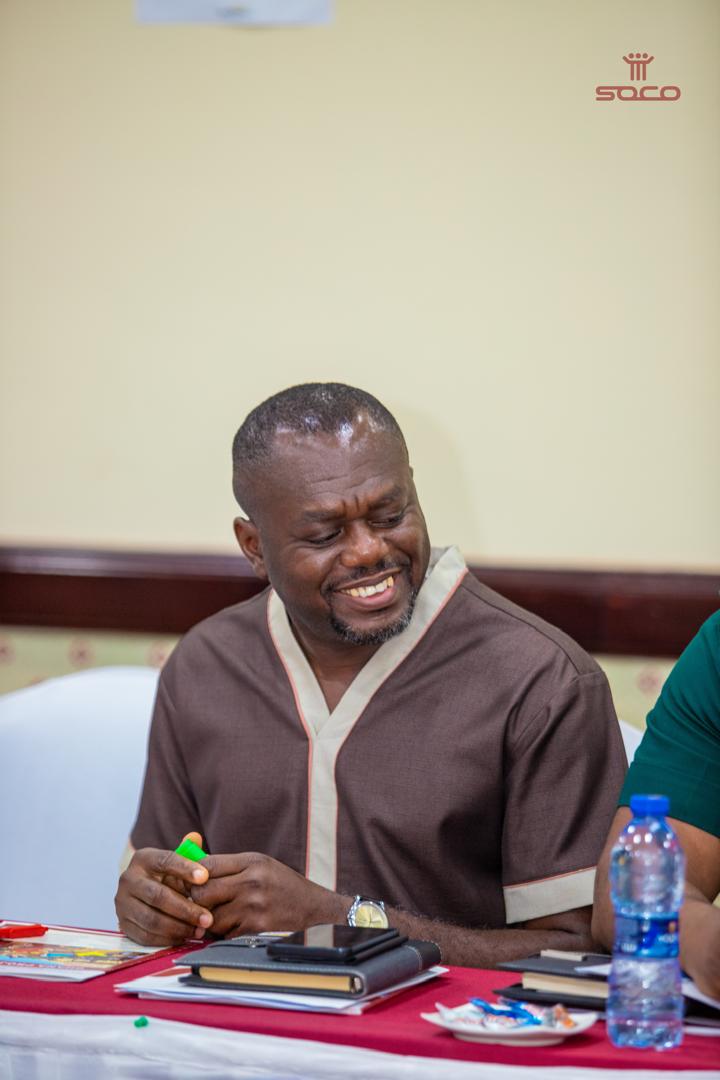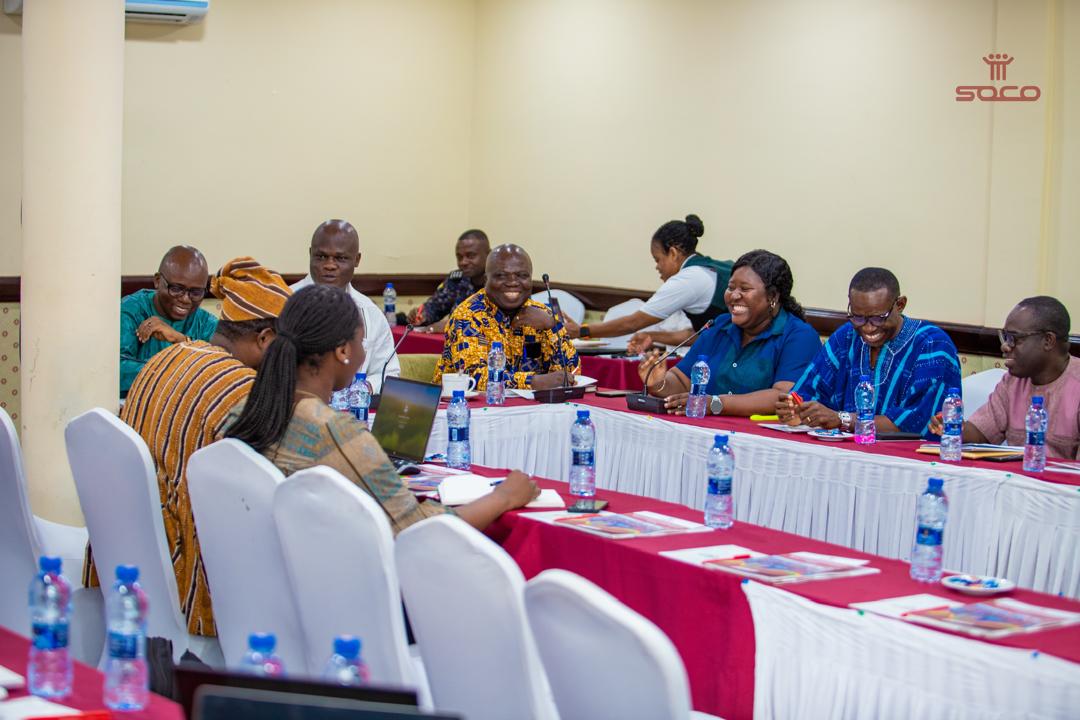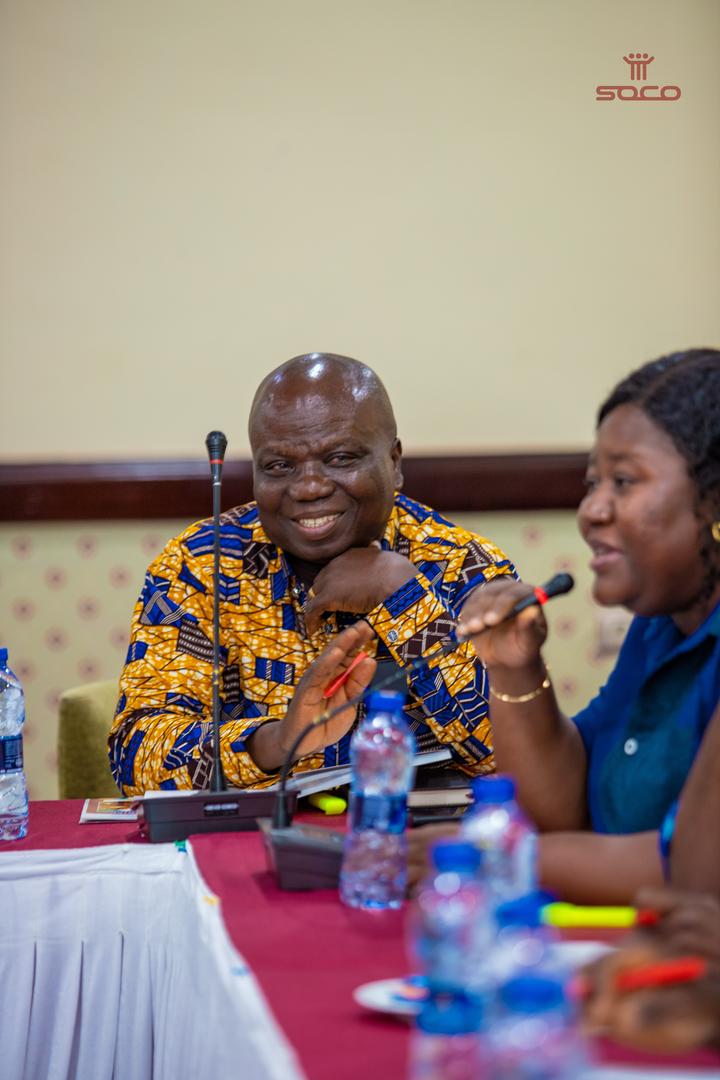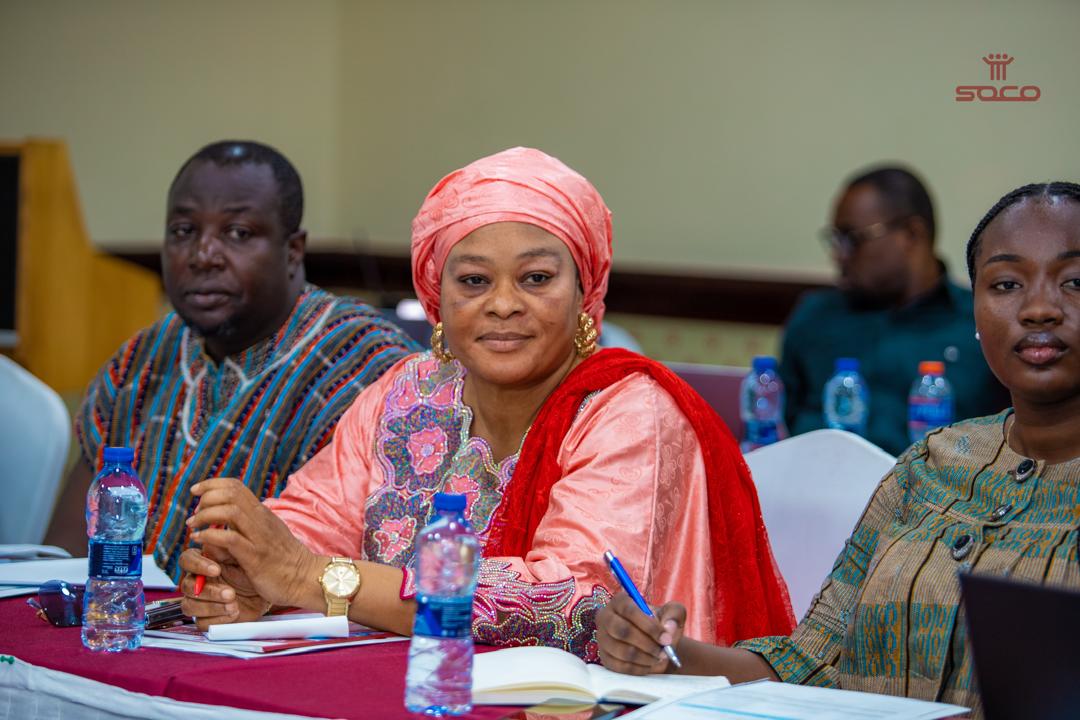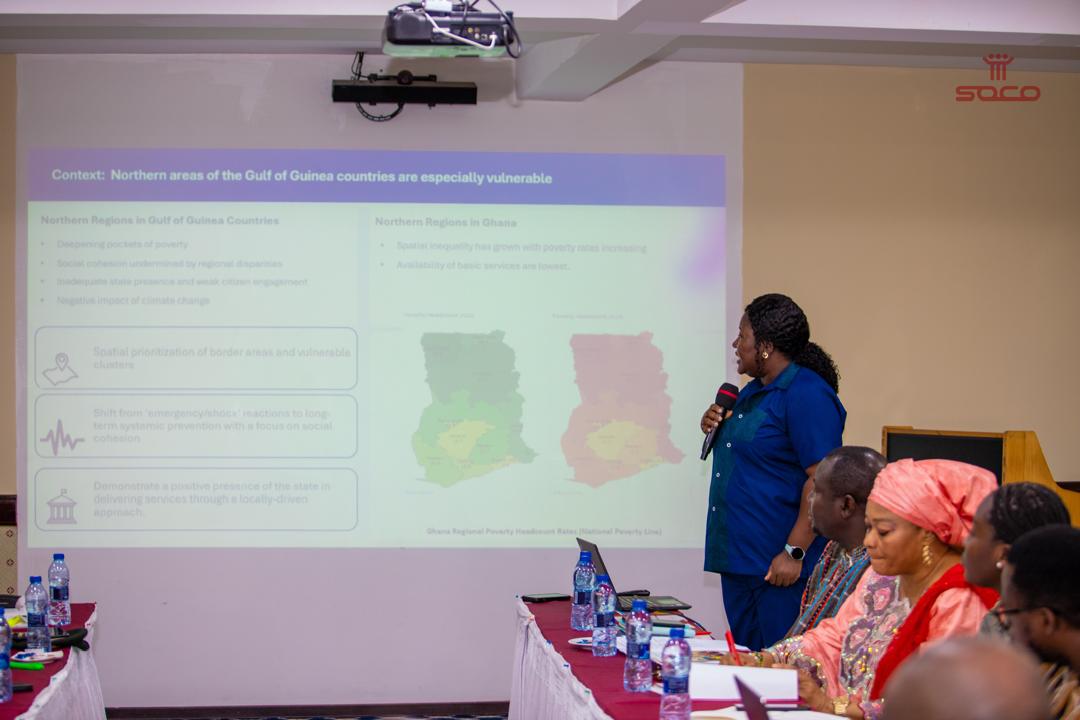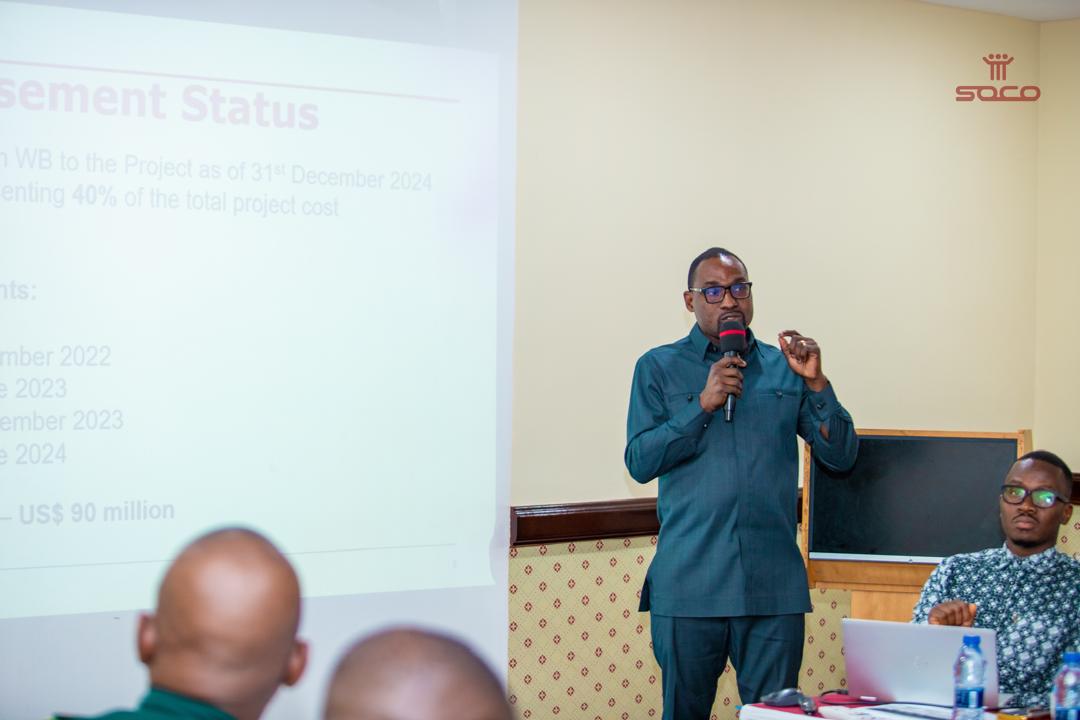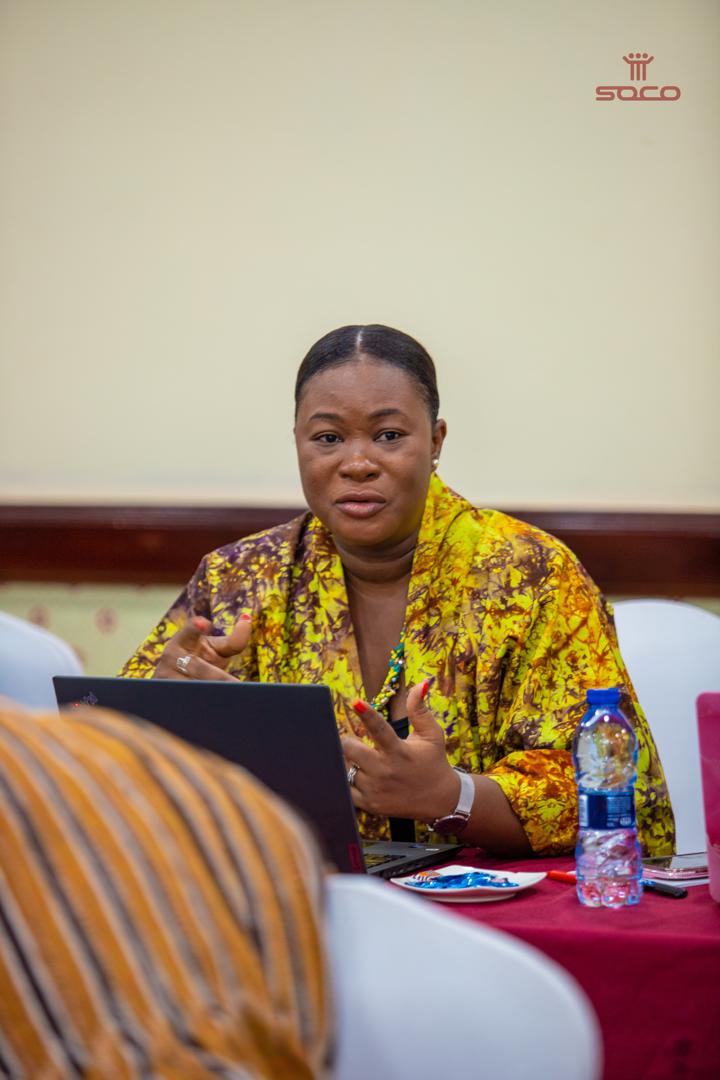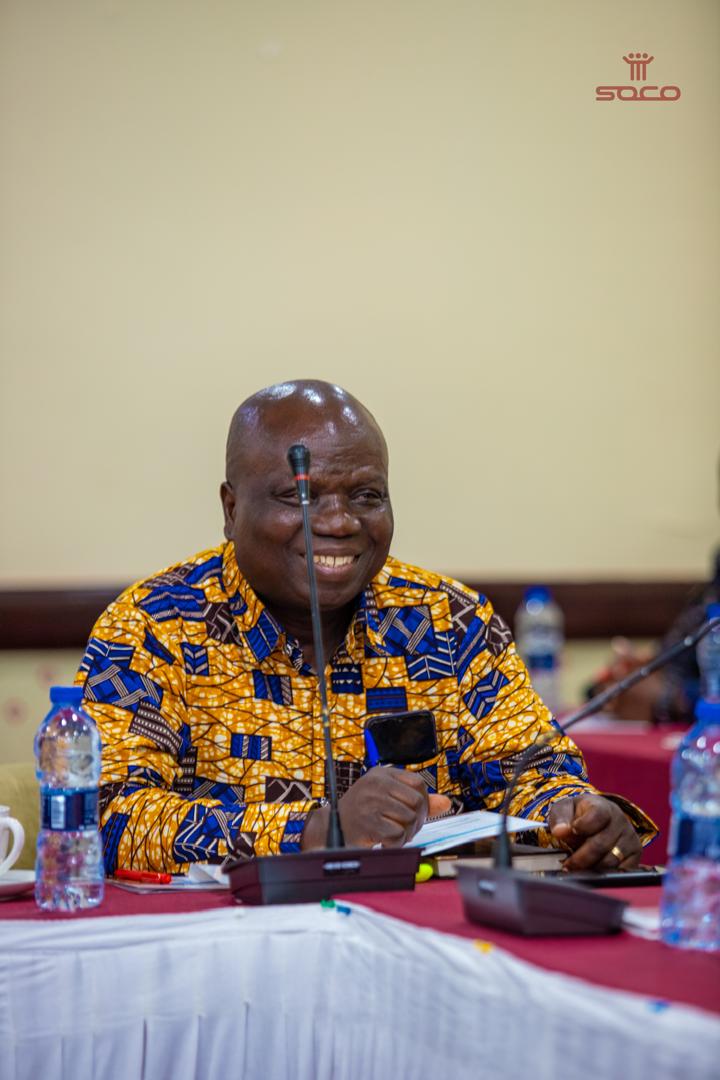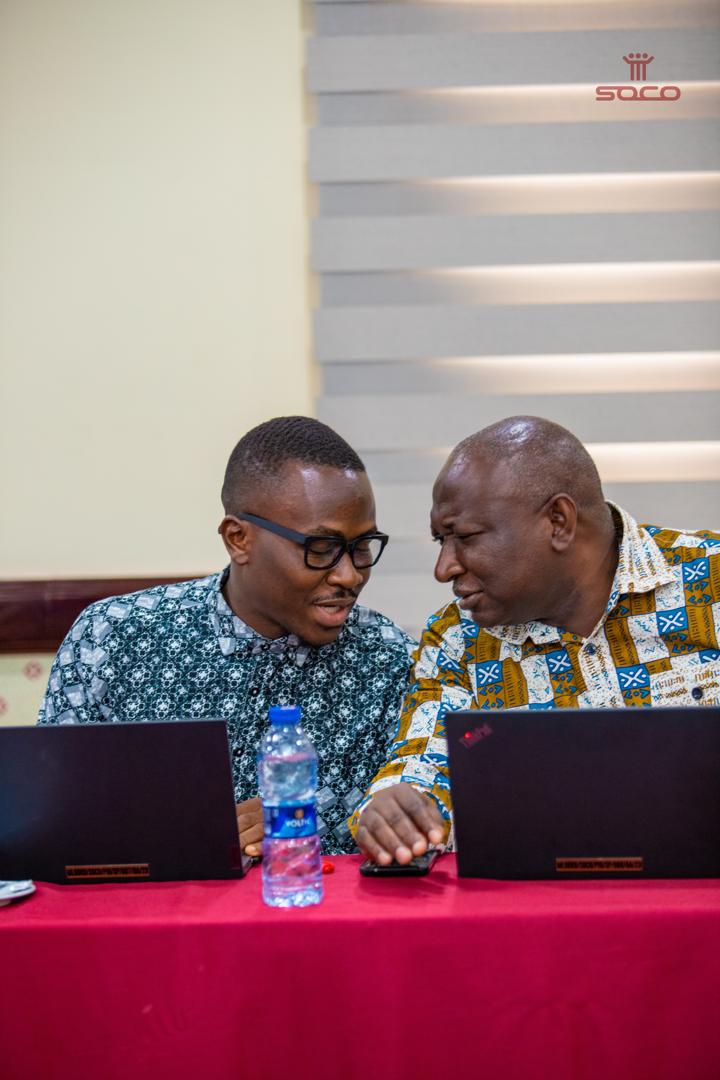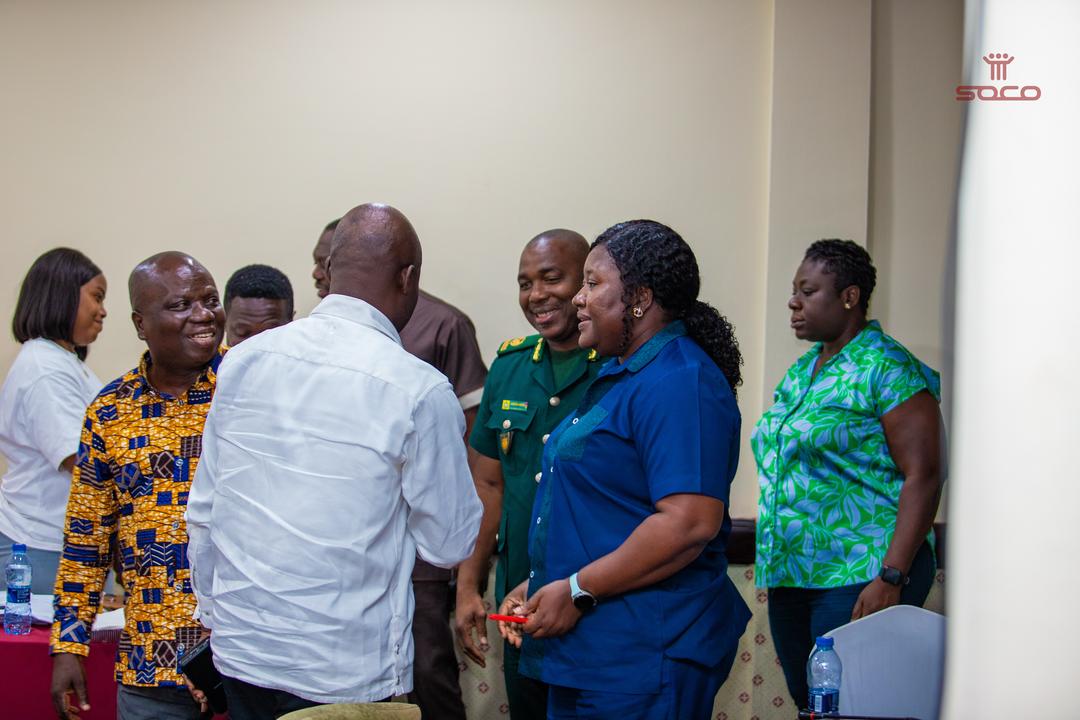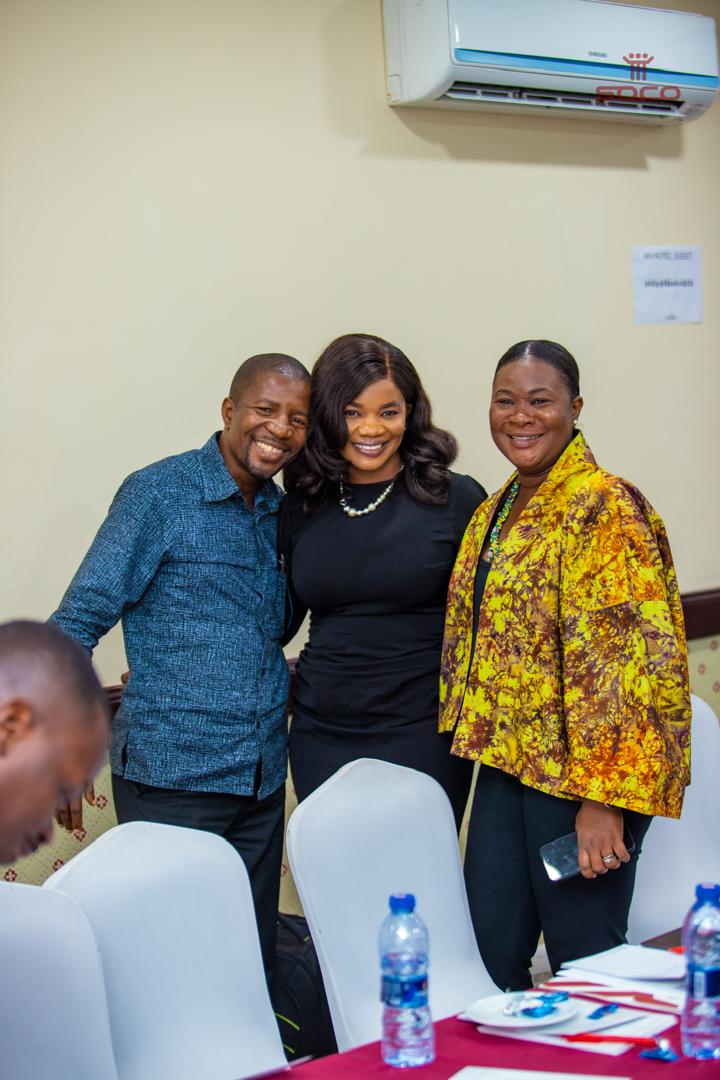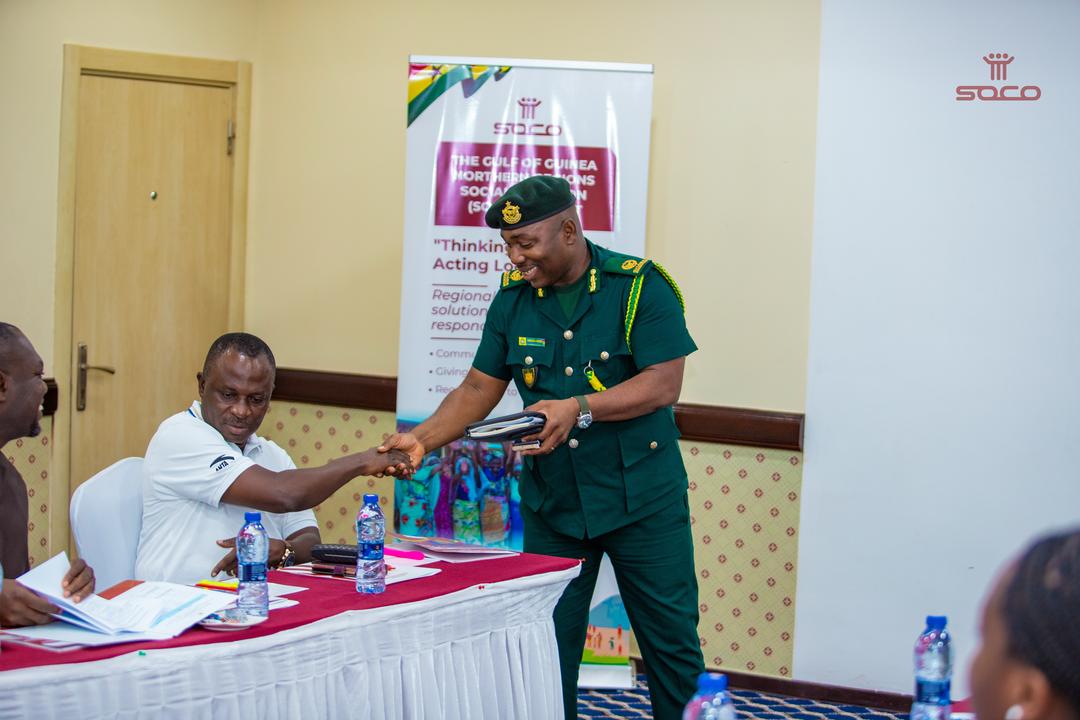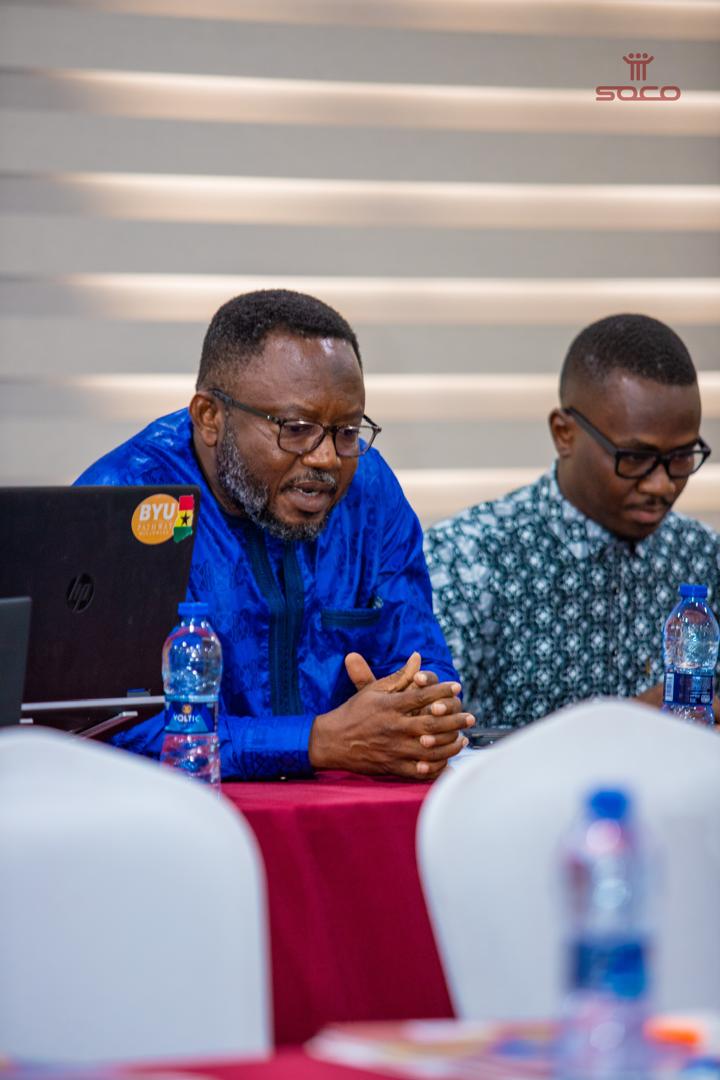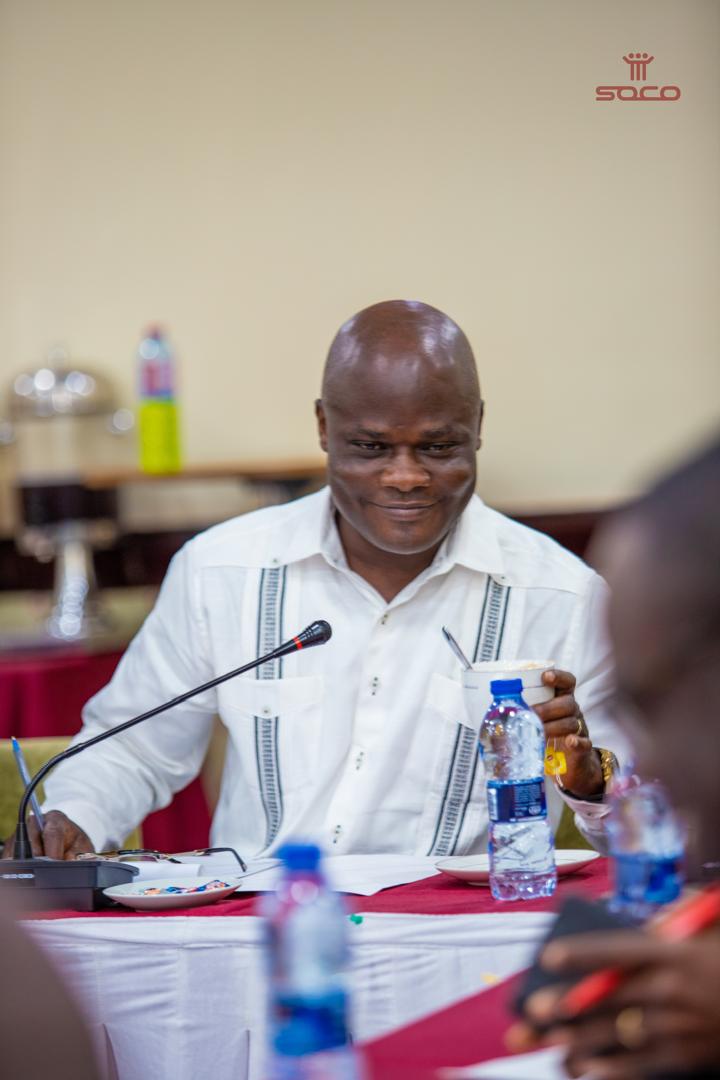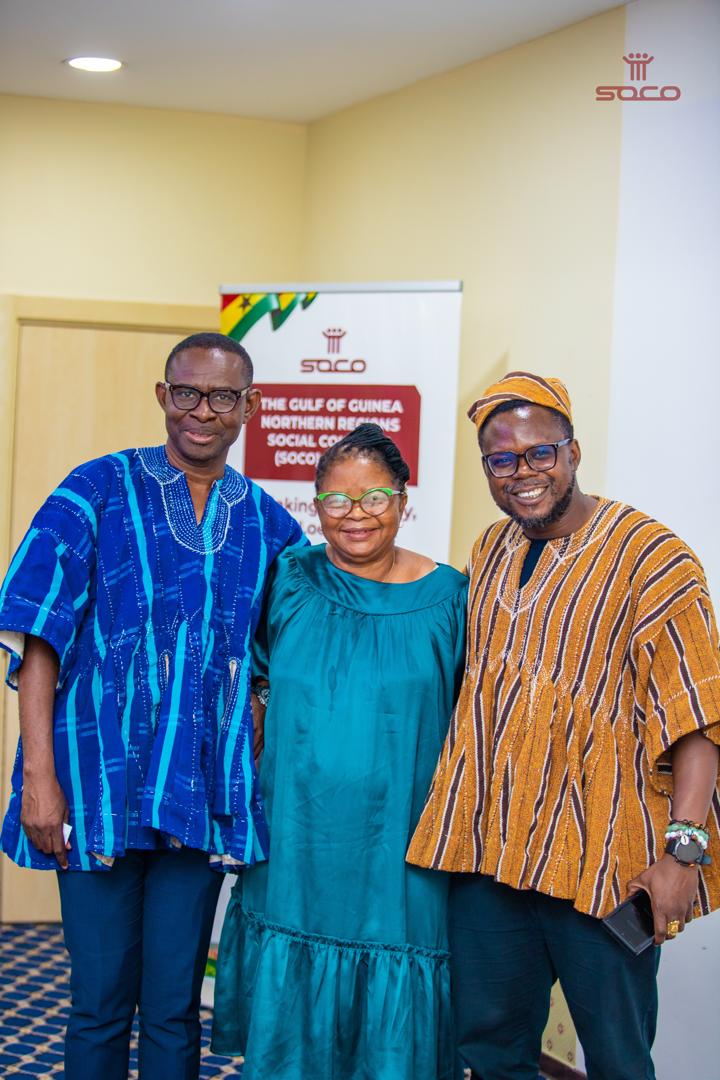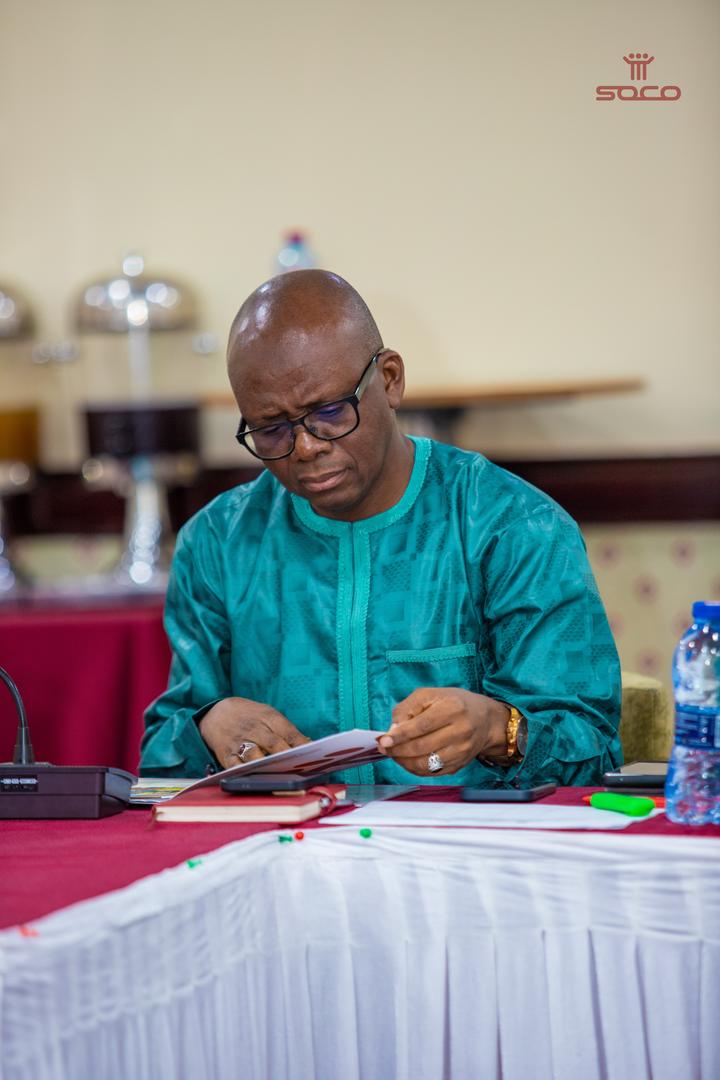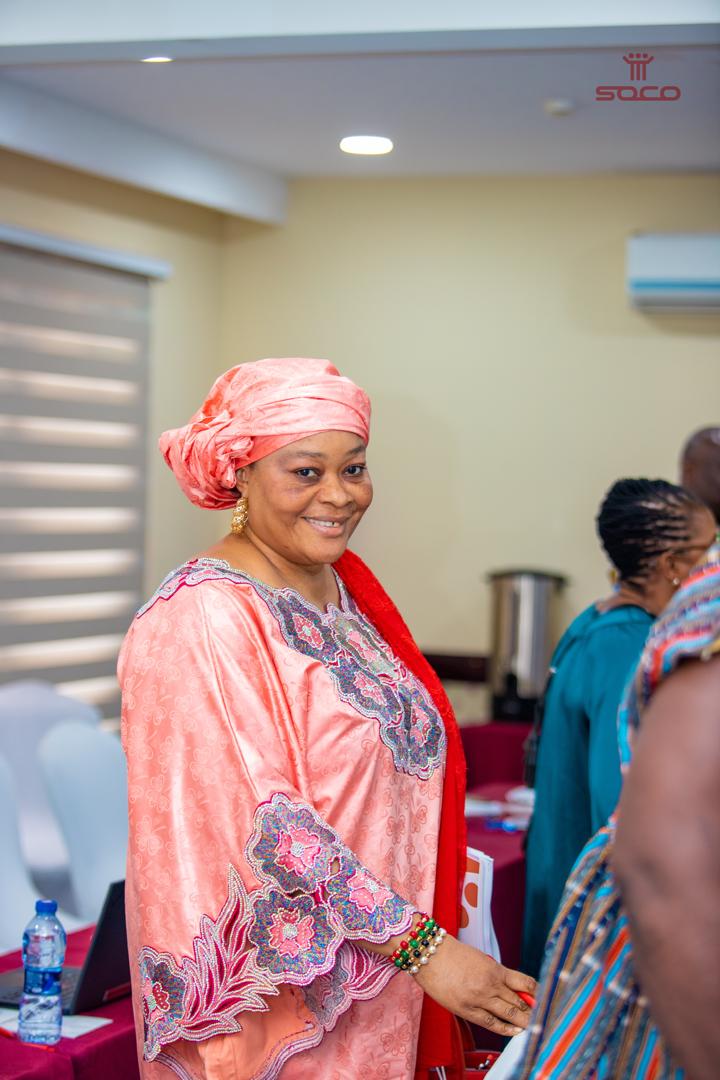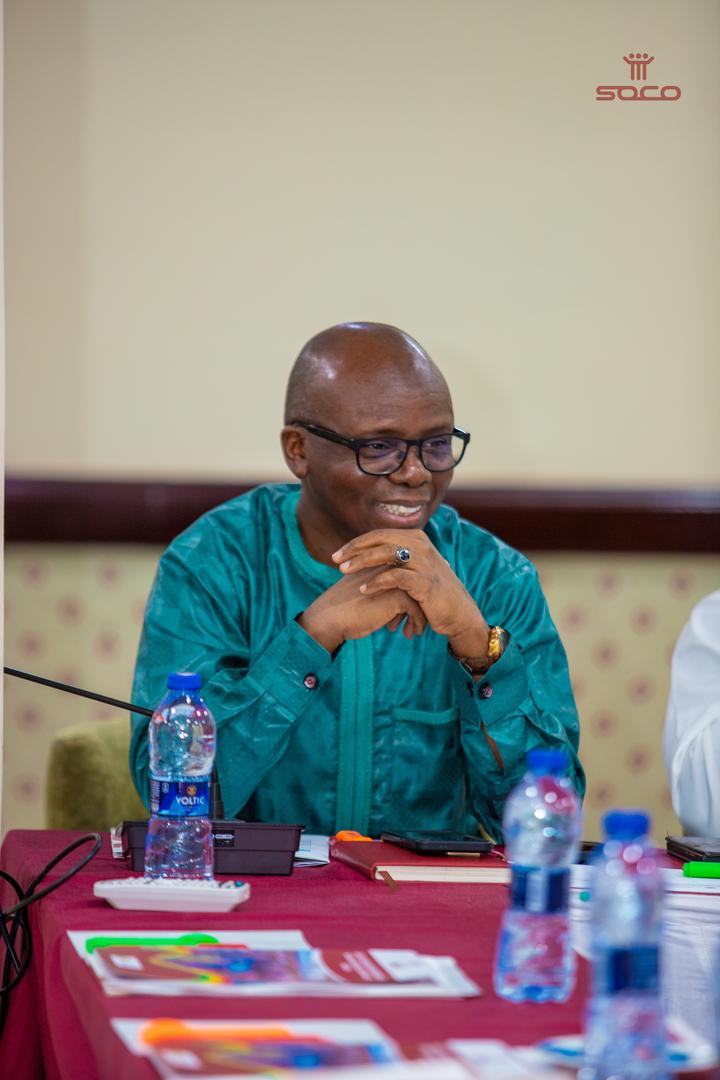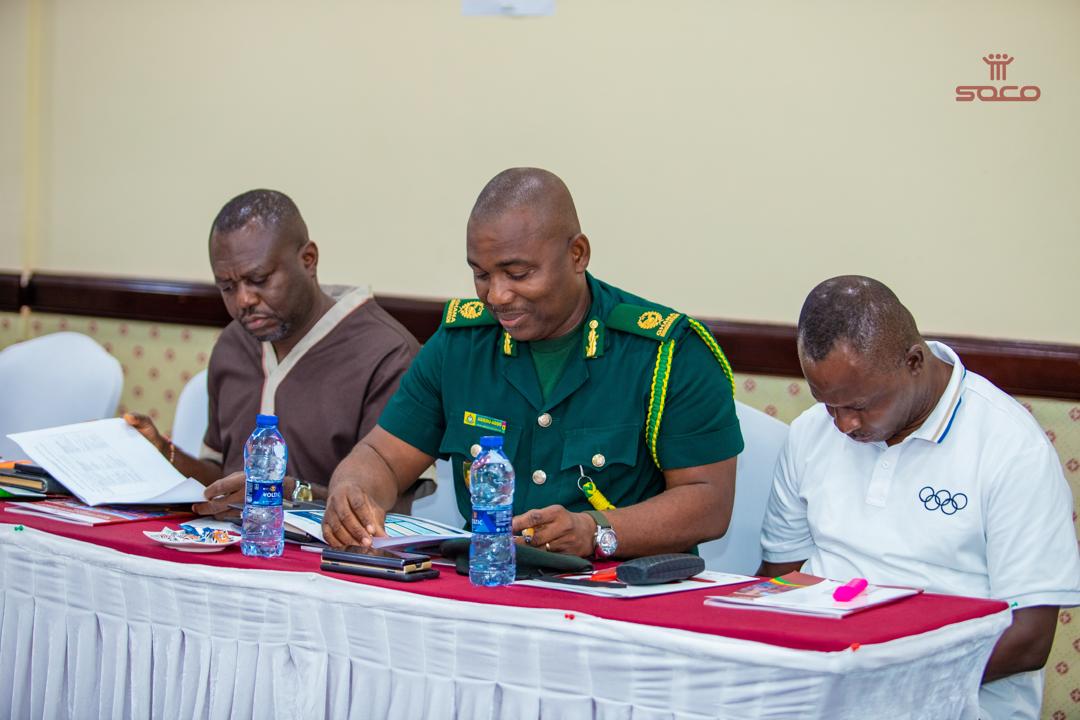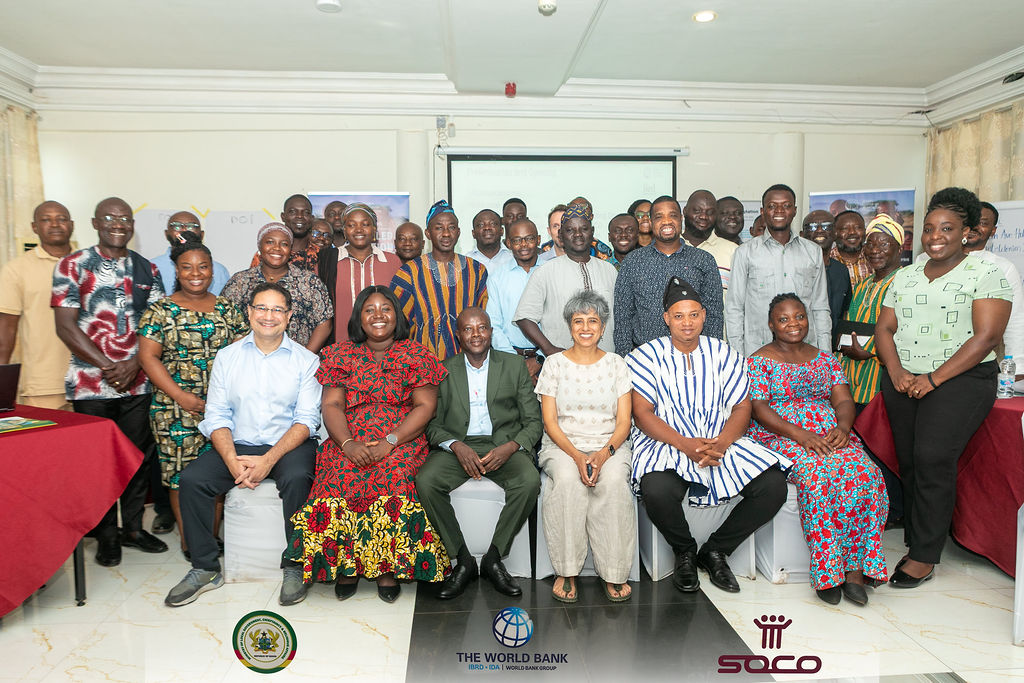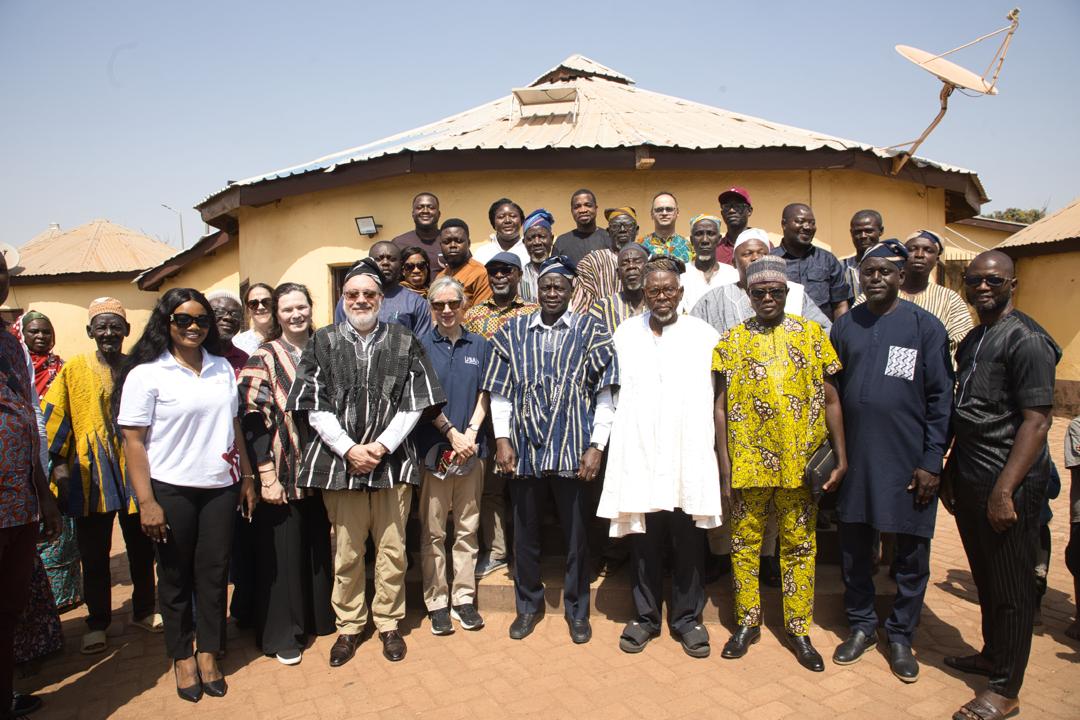On Friday, 21st March 2025, the Project Oversight Committee (POC) of the Gulf of Guinea Northern Regions Social Cohesion (SOCO) Project convened its fifth meeting at the A.H. Hotel in Accra. The session was chaired by the Honourable Minister for Local Government, Chieftaincy and Religious Affairs, Hon. Ahmed Ibrahim, and brought together a distinguished group of stakeholders, including Mr Amin Abdul-Rahaman, Chief Director of the Ministry; Dr Audrey Amoah, Acting Director-General of the National Development Planning Commission (NDPC); and Hajia Jamilatu Ibrahim, Deputy Chief Executive Officer of the Northern Development Authority (NDA). Also present were representatives from the Ministry of Finance, Ministry of Gender, Children and Social Protection, Ministry of Foreign Affairs and other key sector institutions involved in the implementation of SOCO-funded interventions.
In his opening remarks, the Minister expressed his deep appreciation for the multi-sectoral collaboration that has sustained the SOCO Project thus far. He noted that although he had only recently assumed office, the tangible results achieved in project communities reflect the strength of coordinated delivery, political will, and community ownership.
“The SOCO Project is more than infrastructure. It is a strategic response to systemic vulnerabilities—youth unemployment, social exclusion, climate fragility, and governance deficits—that threaten the stability and cohesion of our communities. What we have seen so far is promising, but the work ahead demands even greater resolve,” he noted.
The POC, in line with its governance mandate under the SOCO Project Appraisal Document, plays a central role in overseeing the strategic implementation of the project. It provides policy guidance, approves the Annual Work Plan and Budget (AWPB), and ensures coherence between project interventions and national development frameworks. The committee also ensures that implementation bottlenecks are addressed expeditiously and that the project delivers on its overarching goal to build resilient, inclusive, and peaceful communities in Ghana’s northern border zones.
This year’s deliberations focused on the 2025 AWPB, with extensive dialogue around refining project priorities, enhancing delivery mechanisms, and ensuring fiscal and operational alignment. The Committee acknowledged the gains made during the first implementation cycle. As of 28th February 2025, 489 out of the 530 subprojects under the 2023 cycle had been completed and handed over for use, while 40 were progressing steadily towards completion. Six subprojects were flagged for possible termination due to non-performance, but overall, the project recorded a 92% completion rate.
In parallel, the second implementation cycle has commenced, with procurement completed for 680 subproject. Sixty-five (65) have already been finalized, and the remainder are at various stages of execution. While physical infrastructure remains central, the Minister emphasized the equal importance of non-infrastructure activities—youth engagement, inclusive governance, capacity strengthening, and livelihood development—all of which are critical to the realization of social cohesion.
After thorough review and in-depth discussions, the committee approved the 2025 Annual Work Plan and Budget, signifying a green light for the next phase of implementation. The approval signals the Ministry and the Project Implementation Unit’s readiness to proceed with the full execution of outlined activities, aimed at deepening social cohesion, strengthening local governance, and improving economic opportunities across the 48 beneficiary districts.
Crucially, the POC called for renewed attention to the functionality of user agencies such as the Ghana Education Service, Ghana Health Service, Community Water and Sanitation Agency, and others. As the meeting drew to a close, the Committee called for sustained technical engagement, timely coordination among agencies, and deeper accountability in the use and maintenance of project assets. It expressed confidence that with deliberate focus and continued cross-sector collaboration, the SOCO Project will remain a catalyst for inclusive development, peace-building, and resilient community transformation in northern Ghana.
